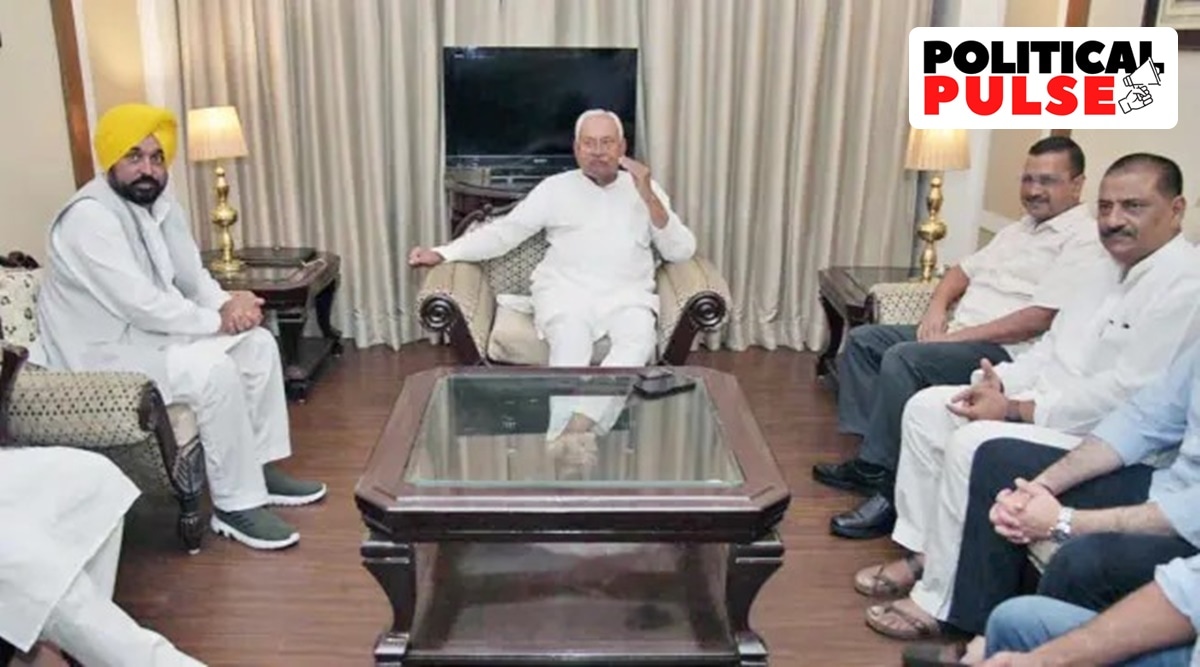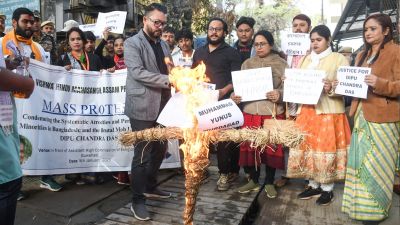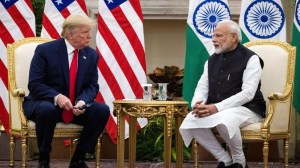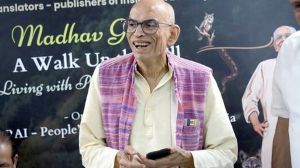In giving ‘in principle’ support to UCC, AAP takes another jab at Oppn unity code
Congress leaders say timing of AAP statement, a day after PM Modi talks of UCC, confirms doubts about “which team AAP is on”
 At the Patna meeting, Kejriwal pressed the Congress to promise support to his government, against an ordinance passed by the Centre. (ANI/File)
At the Patna meeting, Kejriwal pressed the Congress to promise support to his government, against an ordinance passed by the Centre. (ANI/File) Its stand in Patna over a Central ordinance, in the midst of an Opposition unity meeting, did not earn it any brownie points with the others present. But the Aam Aadmi Party (AAP) may have further extended the distance between itself and the parties seeking to forge a common front against the BJP.
A day after Prime Minister Narendra Modi put his weight behind the speculation that a Uniform Civil Code (UCC) might be next on his government’s legislative agenda, the AAP said it supported the controversial move “in principle”.
While the AAP has earlier too said it was in favour of a UCC, the timing will rankle the Opposition, which underlined in Patna the need to speak in one voice on issues.
In his reaction to PM Modi’s speech to his party workers saying a country could not function with different laws for different people, AAP national general secretary Sandeep Pathak said: “We support Uniform Civil Code in principle. Article 44 also says there should be UCC in the country.”
Pathak, however, added the rider that there should be “wider consultation with all religious leaders, political parties, and organisations, and a consensus should be built”. “Some decisions cannot be reversed, some matters are fundamental to the nation. Authoritarian decisions cannot be taken on such matters,” he said.
For Congress leaders, this was typical AAP double-speak. The party’s state units in Delhi and Punjab are opposed to any truck with the AAP, which has grown in the two states at the Congress’s expense. “The AAP has been saying that it is keen on tying up before the 2024 polls. Arvind Kejriwal has met almost all key Opposition leaders. But UCC is a very controversial issue and all parties have differing views on it. At a time when the schedule for the second meeting of Opposition parties after Patna is being finalised, it was very surprising to see such a statement from the AAP,” said a senior Delhi Congress leader.
At the Patna meeting, Kejriwal pressed the Congress to promise support to his government, against an ordinance passed by the Centre. The Congress stuck to its stand that it will decide on the matter after “internal discussions”. The other Opposition parties also told the AAP not to derail unity talks over one issue.
Later, Kejriwal and other AAP leaders left without addressing a joint press interaction by the parties. Back in Delhi, the AAP claimed Kejriwal had requested Rahul Gandhi for a one-on-one meeting, “with folded hands”, but was turned down. It also said that it would be “very difficult” for it to align with any party that did not publicly denounce the ordinance, which takes away Delhi government powers, and that it was yet to take a call on attending the next Opposition unity meeting.
As per another senior Congress leader, the AAP was just trying to grandstand even while not showing any commitment to the principles of Opposition unity. The leader cited the example of how the AAP had earlier vociferously backed the Modi government’s abrogation of Article 370 in Jammu & Kashmir.
“There is a reason the Congress is wary of tying up with the AAP. There was no real need for it to make a statement like this at this time, but when you do, it leaves us in doubt as to whose team you are on. Everyone knows that you turned your back on Kashmir when its rights were taken away, but you want unconditional support from other parties,” the Congress leader said.
AAP leaders argue, in turn, that its stand on UCC is well-known. “The goal is to ultimately have a common code for everyone. That is also what the Constitution envisioned. But our leader also said that a UCC cannot be passed without consultation, or through force,” a party insider said.
The AAP also justifies its position as being in line with its identification as a “post-ideological party”. On several occasions, party chief Kejriwal has said that the AAP’s core ideology is work.
And, if there is one principle that the AAP stands by, as per a senior leader, it is supporting issues of national security, sovereignty and the Constitution. “On these issues, we are clear. The nation comes first,” the leader argued.
In the past, comments supporting a referendum in Kashmir by AAP founding member Prashant Bhushan had been rejected by the party, and eventually saw Bhushan parting ways with it.
Another former AAP leader, who left the party a few years ago, said this fluidity when it came to ideology could only work till a point. “When you do not have an ideology, stands can be changed. The AAP has done well to promote the work it has done in the city, but there are some issues that require you to take a moral stand,” said the leader.
As to where this leaves the AAP ahead of the second meeting on Opposition unity, expected in Bengaluru in mid-July, a senior AAP leader said: “I don’t think this will affect anything. The issue of a UCC is an important one, and we have made it clear that its implementation should not be pushed through. As for attending the second meeting, we will take a call soon.”
- 01
- 02
- 03
- 04
- 05































